The Fakirani Jats, part 2: rigid gender roles, patriarchy, and the ethical dilemmas of my work.
A more personal piece about my emotional responses to the dark side of tradition.
“I’ve seen almost more beauty than I can bear” - Everett Ruess
This piece builds on the previous post. It involves a state of emotional dissonance that I sometimes enter in relation to the human species, to my own life, to life itself. It is often evoked by music, poetic words, or exposure to beautiful scenery or acts. It’s a simultaneous experience of joy and sadness, love and tragedy. It’s absolute beauty and the epitome of sorrow coexisting, in a profoundly meaningful way. “Bittersweet” or “ambivalence” miss the point. It’s more cathartic, like a zen koan. It is an inspiring state, that doesn’t make logical sense. It’s a paradox, a riddle that has no answer. Theirin lies it’s power.
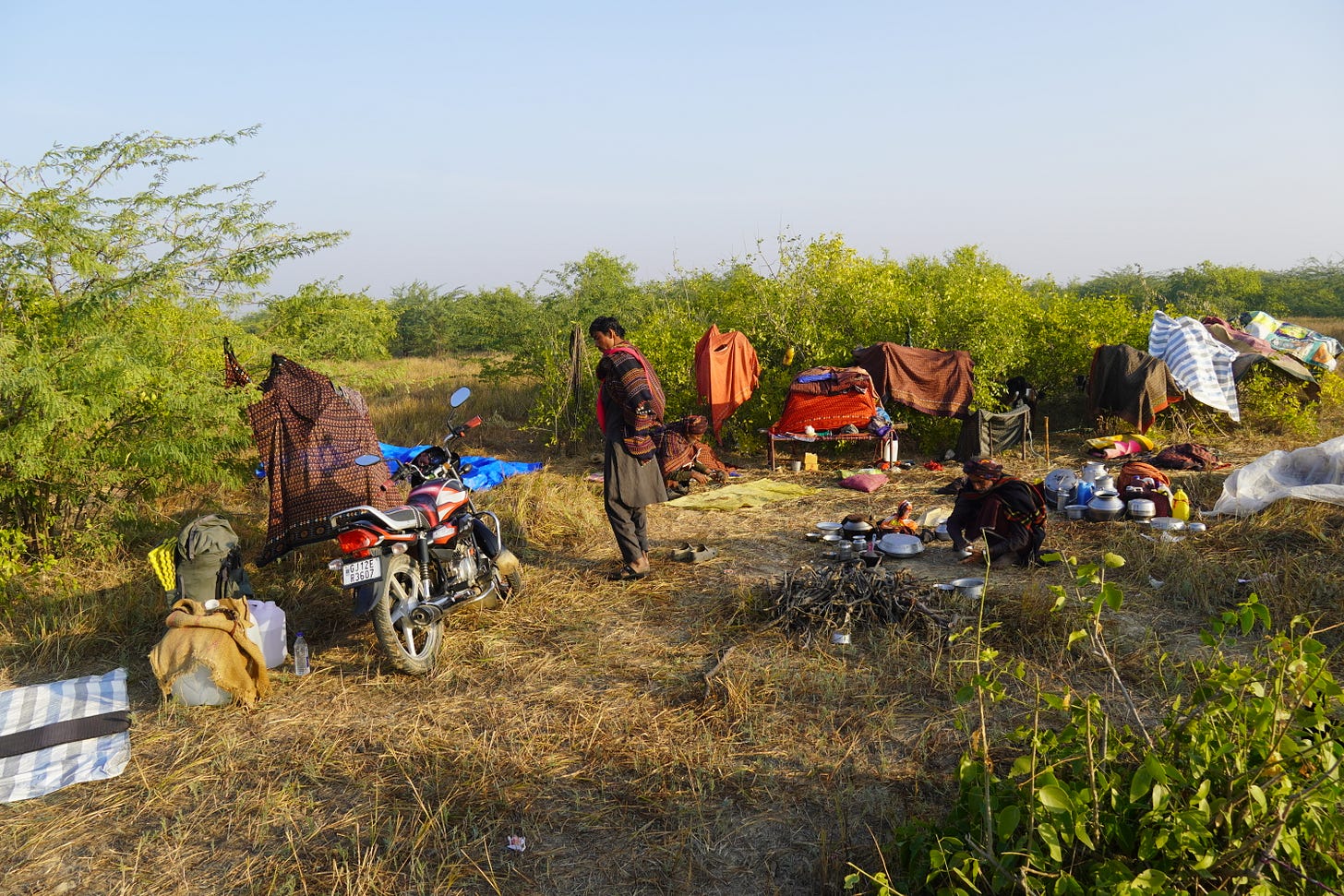
While staying with Adu Kaka, I was told where to sleep. On the periphery of camp, but close enough that he could keep an eye on me. They made me my own fire, I wasn’t invited to sit at the main one where the women sat and cooked. Adu fed me first, then ate at the main fire. After eating, him and his sons joined me at mine. His daughter - who was probably about ten - was obviously curious about me. Everyone was. She would sneak over to the fire and sit at her father’s side, staring at me with wide open, delicate eyes. I will never forget that look of uninhibited wonder, paired with a coy smile that went straight through my armor. It was hard to bear. I sat silently staring at the fire, imaging what her possible futures could be. Where will her life lead? In this case the path seems fairly certain. She will likely marry a camel herder, and spend her life in camps like this. She will follow the lead of the women around her, embroider shawls, make patchwork handbags, carry water on her head. She will likely have children at a very young age, and not be given the opportunity to socialize outside of a circle controlled tightly by the male elders. Would she choose this life, if she had other options?


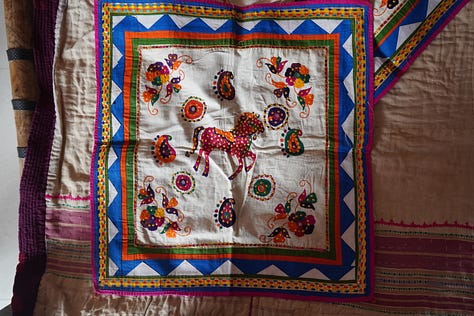

There is a common moral dilemma I run into when I find places where well established dairy-focused pastoralism is still strong. I often run into highly conservative, patriarchal social norms. Generational poverty, the lack of access to basic resources, neglect from the so-called government. These are often factors in the maintenance of the old ways. There is often a pretty gnarly dark side, that I become tangibly aware of as I immerse myself physically and emotionally in these settings. There is a contradiciton: the forces that allow people to maintain the well-established lifeways of their communities are often preventing them from exploring their own life paths. When other paths are open, through education and opportunities to pursue careers outside livestock rearing, the erosion of the old ways accelerates.
What I’m observing in the kaleidoscope of communities, castes, clans, and religious complexity in the Kutch region of Gujarat is causing an extreme version of these familiar conflicted feelings. I’m finding it hard to speak, but feel it is necessary to do so. This is a stumbling piece of writing, that was uncomfortable for me to write, but I feel it needs to be shared.
One thing that immediately impressed me while visiting the Fakirani Jats was that children, teenagers, and young adults were fully engaged in camel herding, milking, and camp tasks. This is the link I so often see severed. In many of the places I visit herding is mainly being done by old men who say “we are the last ones. The young people aren’t interested, it’s a hard life that doesn’t pay.” When the children stop learning the skills, the old ways begin to be lost. Many families lament the loss, but want their children to have the opportunity to go to university, and get good paying jobs in the cities or abroad.
The fact that those opportunities don’t exist in Kutch, and that there is social pressure against secular education and gender equality, is a big part of explaining why a group like the Fakirani Jats continue to live how they do. The children are with their families, learning to be herders, because they are not in school. The education of woman is still seen as a negative according to the dominant Sunni Muslim ideology of multiple groups here. Woman are strongly discouraged from interacting with outsiders like me, watching television, or owning smartphones. It seems their only sanctioned expressive outlet is in their needlework, which is vibrantly colorful and overflowing with beauty. It’s almost too much beauty. Painfully beautiful. Many girls from highly conservative families will have marriages arranged while quite young, and begin having children as teenagers.
This video begins with background audio, then I begin commentary at :45.
When I mention they would milk 4-5 times a day that is from different camels, it seems like an individual was only milked once a day.
The traditional knowledge is being transmitted, the next generation of herders being trained. But at what cost? The negatives of these situations, especially for young women, are overwhelming. The denial of access to education and other resources by a neglectful government and violently enforced patriarchy, the subjugation of people stuck in deeply rooted heirarchies and a caste system are inexcusable. And yet, they are in part responsible for why this pastoral lifeway is so intact. I swing between elation and anger. I don’t know how to feel, so I just feel, and let these feelings come out as sounds, as words, as thoughts and movements. I do the things that always feel right. I breathe. And I walk.
There must be a middle path. A way to carry forward and reinvigorate the value of the foodways and ecological impacts, the wealth of the animal breeds and ancestral skills. While also allowing a life of opportunity and access to what should be basic human rights. If we can’t have our cake and eat it too, why are we making cakes at all? I don’t know. And I don’t need to know. Moral certainity is at the heart of the destruction being rained down by religious and political fundamentalism. Life isn’t a riddle that needs to resolved into moral clarity. We can accept uncertainty, while still speaking and act from our hearts, taking a stand for what we know is true and real.

I’m learning to ride through and gain inspiration from these heavy feelings, this too often debilitating ambivalence. The point isn’t to feel good all the time. The point is to feel, to not let your heart become calcified, to not let the armor get so thick that you forget how to take it off. It will weigh you down until you can’t move. The point is to find meaning, to keep going. Life is messy, the water is murky, a mixture of clear, life-giving glacial fed rivers and polluted shit streams. Things can be simultaneously positive and negative, for a single individual, for communities. Conflicting emotions come along with having a heart that beats.
What I’ve seen here in the Banni grasslands, during the short time I spent with this group of camel pastoralists, is beautiful and tragic. As I get a ride out against my will, wishing I could stay longer, I shed tears. The tears are a mixture of sorrow and hope. Sorrow and hope shot through me by the eyes of child. Sorrow for what the people here have been put through, and what they subject each other to. Hope, that these pastoral lifeways represent seeds, planted deep in our nature. Hope, that these seeds remain viable in the soil after the scorching fires burn out, and the rain returns, filling the lakes and streams with the songs of birds, reptiles, humans, camels, and the foxes, wolves, and hyenas that are also a part of the great circle. The great firepit, that is the whole planet, solar system, galaxy. Where we can all sit, and look each other in the eyes.





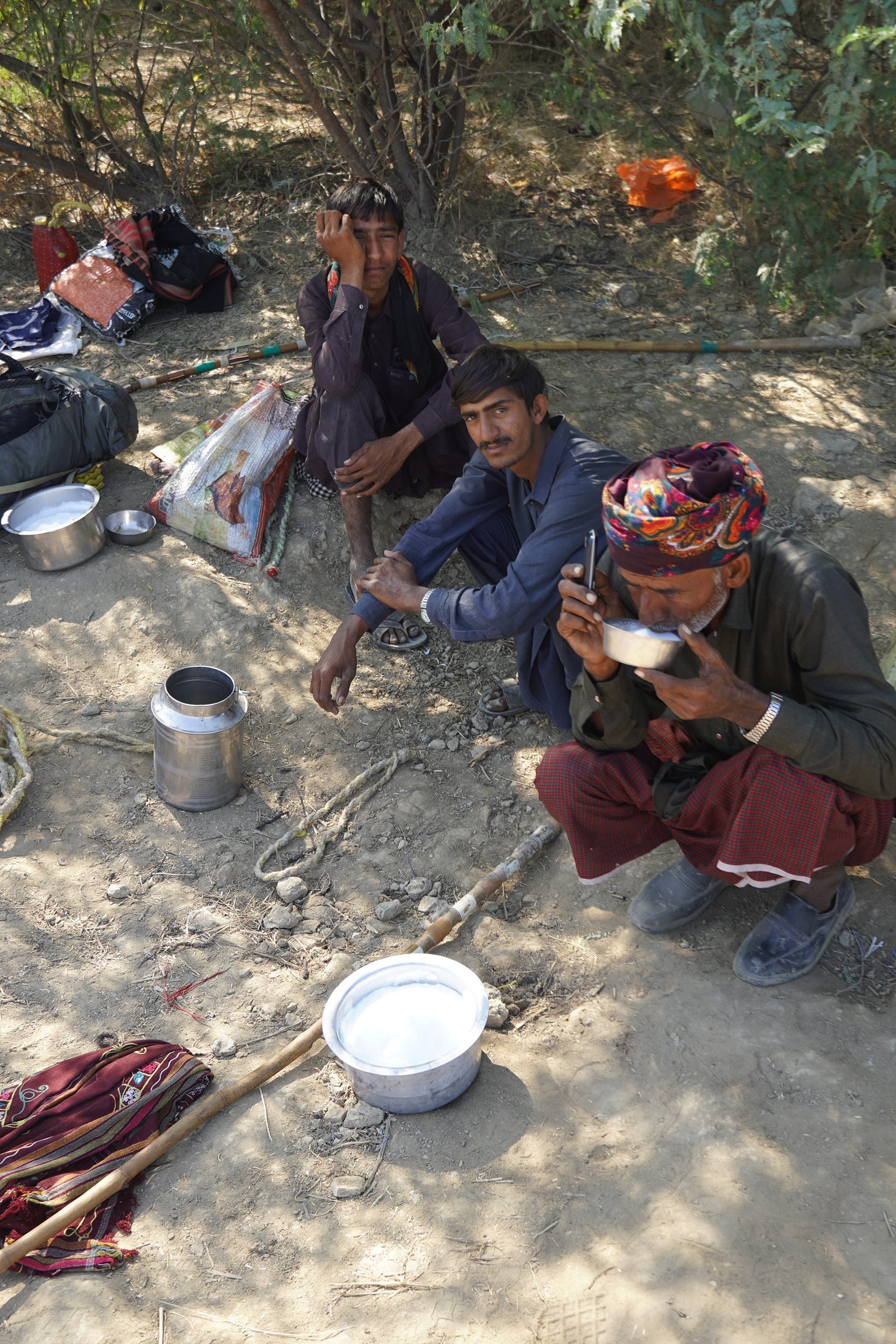
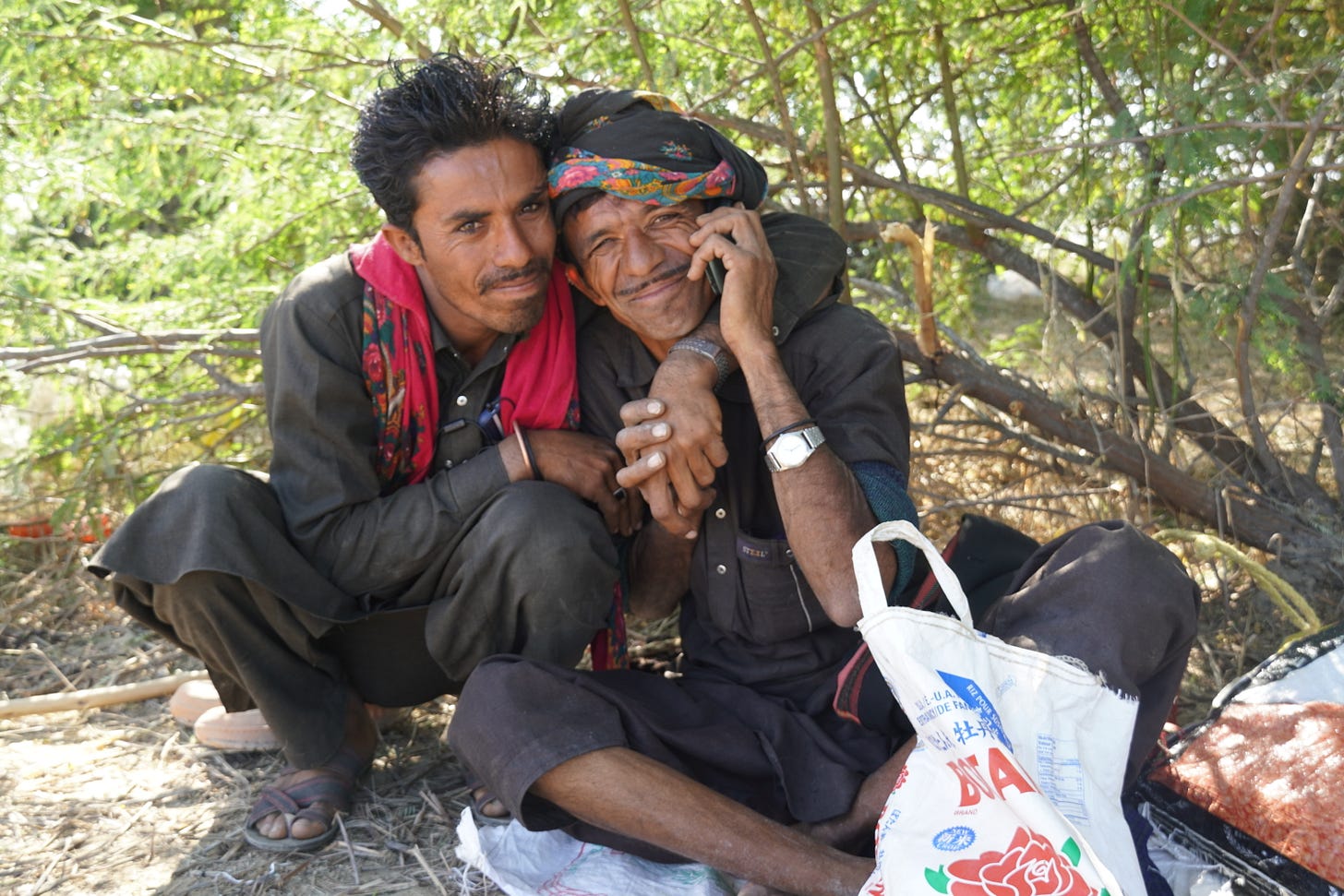
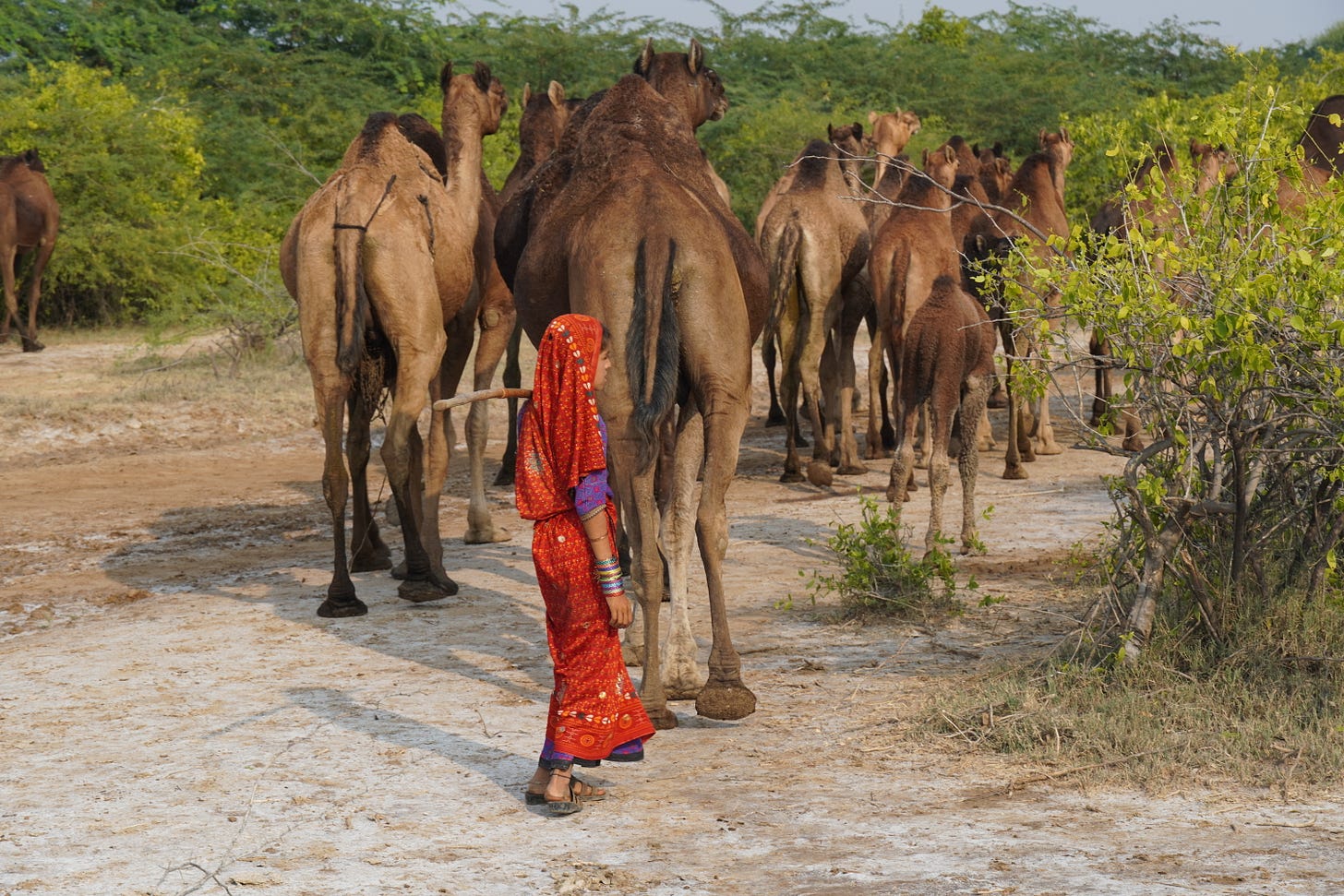
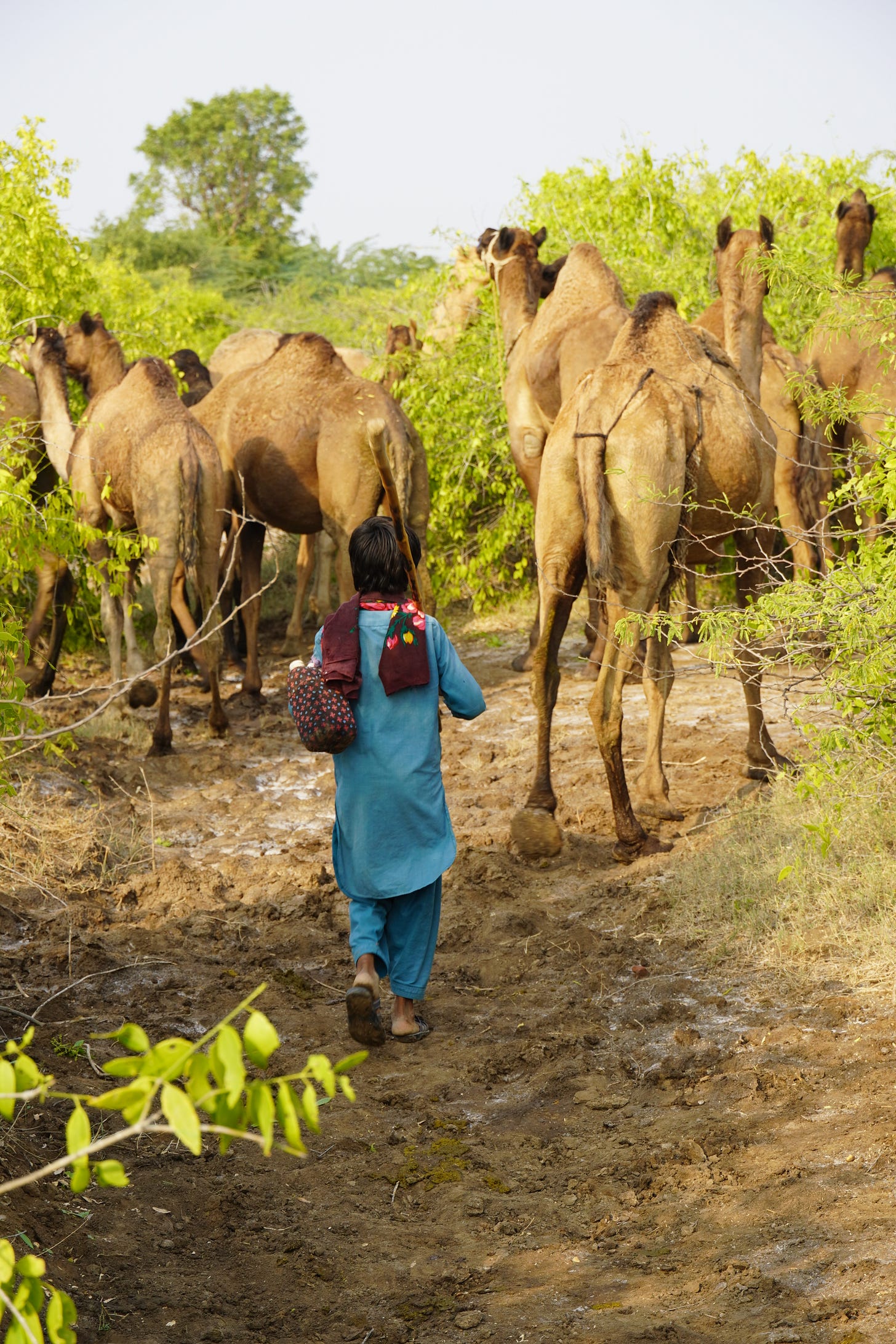

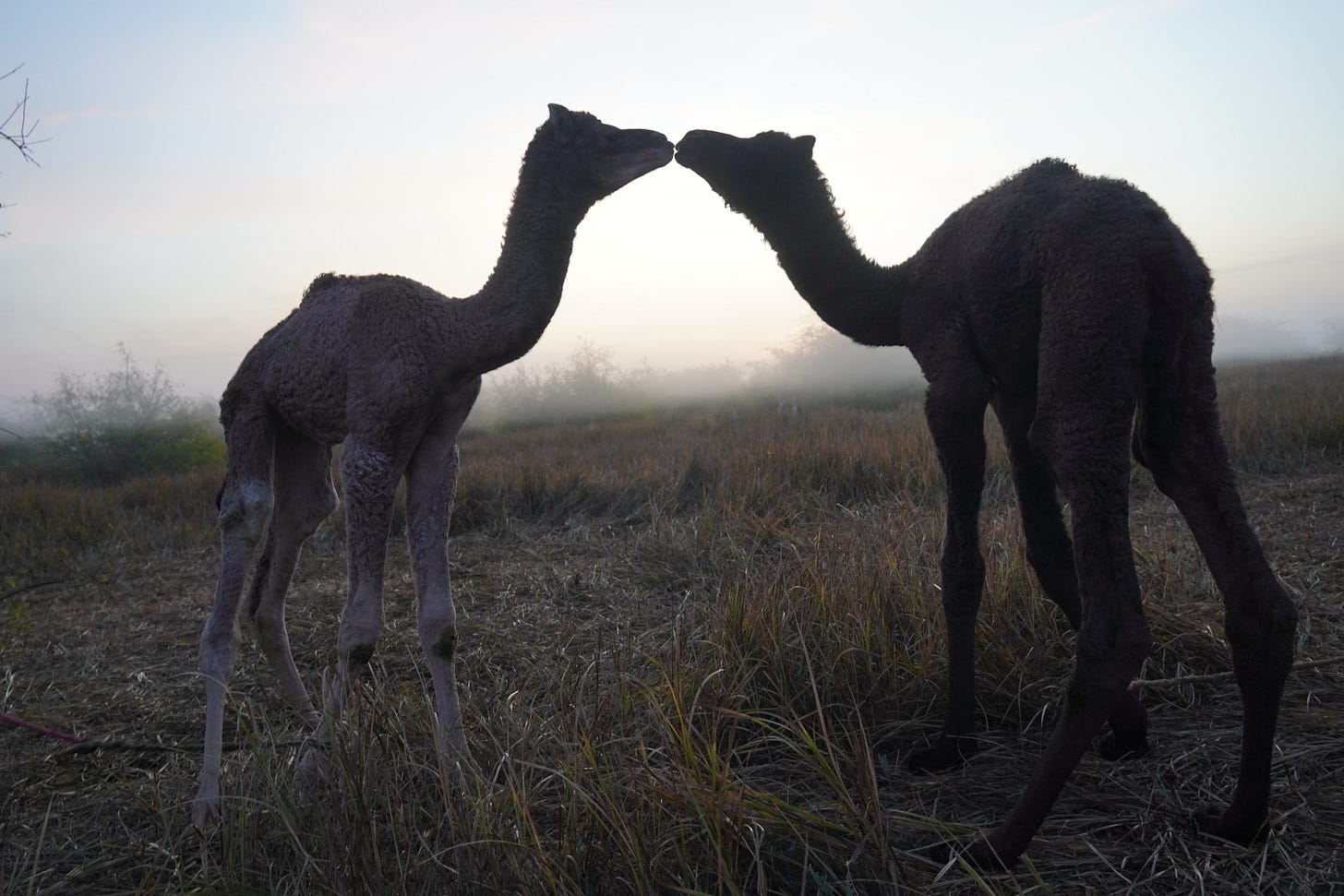
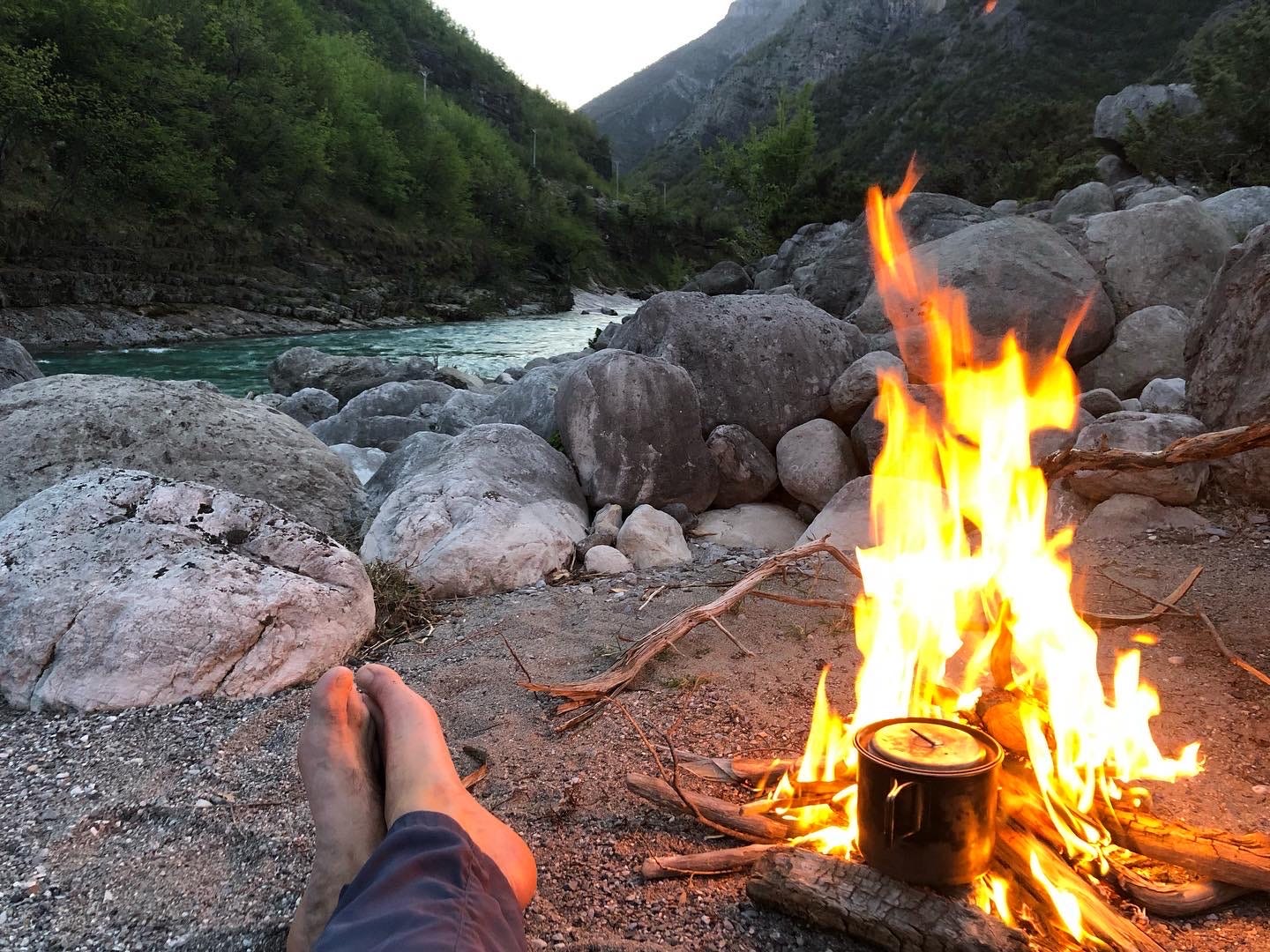
In these days of siding, blaming cancel culture, I love that you are strong enough to respectfully observe and witness, to have your reactions and yet refrain from imposing judgement. Life is a riddle. A tree grows from a rock cleft, but do we blame the cleft for the tree's stunted shape..?
Raw milk, not homogenized milk.... Raw life, not homogenized.
Thank you for doing what you do, it's incredible.
You must realize how you may not be able to do this work if you were a woman. I lived in a rural Italian village for three years and I told my ex boyfriend I wanted to learn how to milk cows and make cheese, which is usually (or almost always) done by men. He said I shouldn’t because it would look bad. The men would be tempted, people would start talking, wives would be jealous, and he might get jealous too though he didn’t say so. How do traditional ways keep going if the thinking behind the ways are stuck in the same tradition? If men don’t want to take over the cheesemaking and animal raising, why not let or encourage women to do it? When the road was built in 1967 in the village I lived in, many people, including women, left to get jobs mostly in factories, and people stopped raising cows and practicing traditional agriculture. So there’s only three cheese makers left. Is there a way to have both education and traditional agriculture AND make a living from it?